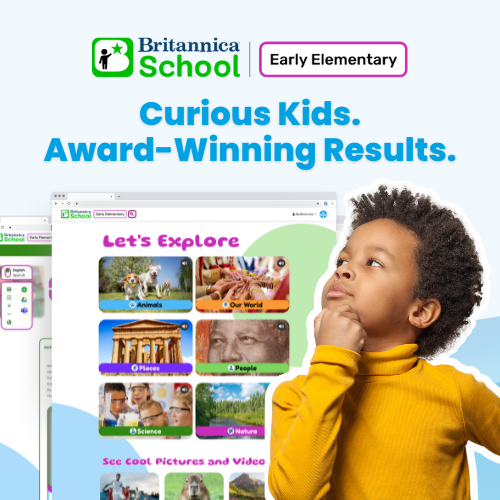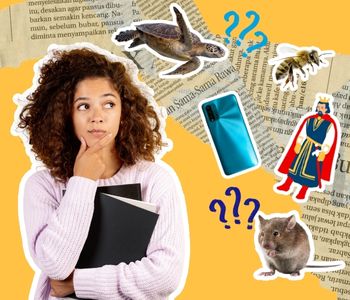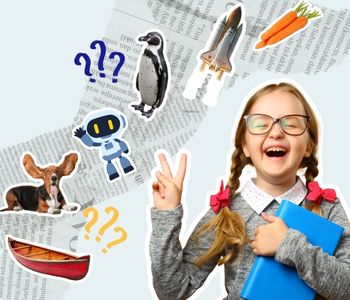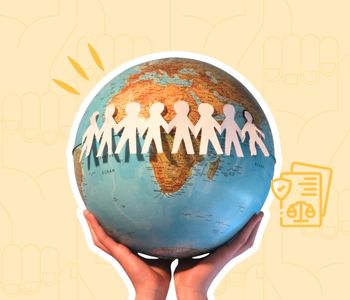
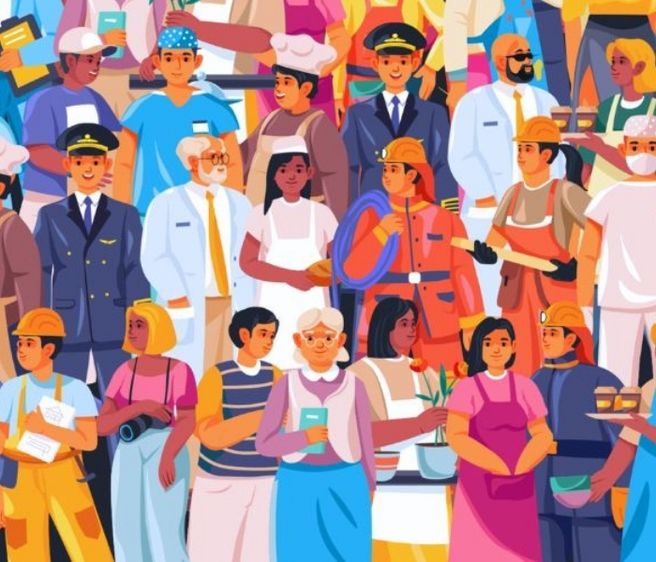
Table Of Contents
Say you’re teaching a math, science, or history class, and a student asks the age-old question: “Why do we have to learn this?!” Your gut reaction might be a simple, “You’ll need it one day!” or to dive into the details. Instead, why not turn to the experts in the field?
We had the privilege of talking to some incredibly talented individuals, and we’re excited to share their insights with you to help bridge the gap between classroom learning and real-world careers!
Meet a Volcanologist: Understanding Earth’s Fiery Wonders
Ever thought studying rocks was all there was to geology? Well, think again! Our chat with a volcanologist opened our eyes to a whole new world.
A volcanologist’s impact: Volcanologists’ research and applications are crucial for both science and safety. They not only deepen our understanding of how Earth functions, but they also help us prepare for and mitigate the impact of volcanic eruptions. Put simply, their research keeps communities safe and helps protect the environment.
A Volcanic Activity
Use this Teach Britannica open-access lesson mini to take students on a true exploration of volcanoes—after taking notes on the interview, they’ll discuss as a class and create visual summaries.
Becoming a volcanologist: Volcanology combines geology, chemistry, physics, and earth sciences and even touches on sociology when looking at how people and volcanoes interact. This makes the role both challenging and incredibly rewarding, requiring a wide range of skills and knowledge. This fascinating career takes a real love for science, requiring at least a bachelor’s degree in geology, geophysics, or earth science. Most often, a master’s or Ph.D. is recommended as well.1
Meet a Glaciologist: Ice, Climate, and Our Role in the Environment
Climate change is a hot topic, and who better to discuss it than a glaciologist? Learn how the study of glaciers helps us understand climate patterns and what you can do to make a difference with this fun career feature.
A glaciologist’s impact: Glaciologists investigate the relationship between glaciers and our world — and even other worlds! Their in-demand work provides much-needed information on climate change, rising sea levels, and conservation.
Getting Glacial
Extend this video into a full lesson or unit using Teach Britannica’s “Exploring Glaciers with Glaciologists” activity ideas!
Becoming a glaciologist : Like volcanologists, glaciologists are passionate experts about Earth and other sciences, including climatology, environmental science, geography, and physics. A minimum of a bachelor’s degree is required, though most glaciologists have advanced degrees and specializations.2
Meet an Architect: Making Masterpieces
An impressive blend of art and science, not to mention millennia of awe-inspiring work worldwide, makes our next career feature truly stand out. From ancient greats like Egypt’s pyramids, the Greek Parthenon, and the Great Wall of China to modern-day marvels like Dubai’s Burj Khalifa and the Sydney Opera House, architects flaunt their impressive skills all across the globe.
An architect’s impact: Even if their building is not the next addition to the New York City skyline or a must-see world wonder, an architect’s job is critical at any level. Not only do architects ensure a structure’s functionality and safety, but they also add social value by creating aesthetically pleasing, innovative, and sustainable works.
Build it and They Will Come
Take architectural concepts to the next level with Teach Britannica’s “Architectural Wonders Unveiled” lesson mini, where students can design their own buildings, research famous towers, and much more.
Becoming an architect: Careers in architecture combine a range of subject areas that students explore during primary and secondary education, including mathematics, physics, and geometry. It requires a formal degree that encompasses topics like engineering, history, theory, and building design at a bachelor’s or even a master’s level.
Meet a Museum Director: From Curation to Inspiration
Even with adventurous movie depictions, it’s easy to think running a museum is just about displaying old stuff. If you’ve noticed a theme here, then you already know there’s so much more to it! Our conversation with a museum director revealed a multi-faceted role that goes far beyond simple collection and curation.
A museum director’s impact: The work of a museum director is essential for both cultural enrichment and societal growth. They not only deepen our understanding of various subjects, such as art, history, or science, but they also create platforms for dialogue, learning, and community building. These valuable experts turn museums into dynamic spaces that enrich our lives and broaden our perspectives.
History in Person
Put Rogers’s advice into practice! Teach Britannica’s “Museum Discovery” lesson mini provides options for students to get a taste for how museum professionals facilitate human understanding.
Becoming a Museum Director: The journey to becoming a museum director often starts with a strong academic background in art history, archaeology, history, or a related field. Many directors hold advanced degrees, such as a master’s or even a Ph.D., which equips them with the specialized knowledge needed to curate collections and design educational programs.
Recap it!
Ask students to consider their newfound knowledge about these careers. The “Learn It! Use It!” exit ticket activity in Teach Britannica is one quick way for students to reinforce how they can relate to what they learn in school.
Or, next time students ask “Why do we have to learn this?” you can always respond, “To understand the world and why other people do what they do!”
The majority of the information in this blog was sourced from Britannica School: Middle and High School levels. Not a subscriber? Contact us to learn more.
Additional References
1https://www.forbes.com/home-improvement/contractor/what-is-an-architect

About the Author
Kristie Bangali
Curriculum & Instruction Learning Specialist
Kristie, a Curriculum Learning Specialist at Britannica Education, has over 20 years of experience in pedagogy and curriculum development. She specializes in aligning educational content with academic standards and adapting to diverse student needs. Kristie’s proficiency with digital learning platforms was pivotal during the Covid-19 pandemic, earning her the 2020 LHRIC TELL Award and 2021 Teacher of the Year. She authored a chapter in “Gamify Literacy: Boost Collaboration and Learning,” published by the International Society for Technology in Education (ISTE), showcasing her innovative approach in education. Her impact extends beyond direct teaching, influencing the broader educational landscape.







